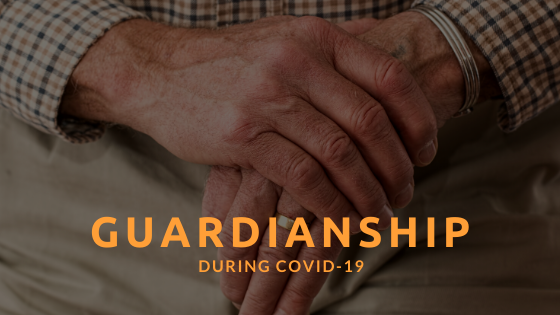More than 100 vulnerable people are receiving the care and protection they deserve, as professional guardians with Mental Health America of Northeast Indiana, (MHANI) adapt quickly to changes brought on by the coronavirus.
Guardianship is a legal process that gives an individual or entity the power to make decisions on behalf of an incapacitated individual. When there are no available family members, a professional guardian may be assigned.
“We are their voice,” said MHANI’s Director of Guardianship Services Joseph Blazier. “We visit them on a regular basis. We work with their service providers. We advocate for medical needs and sign consent for necessary procedures.”
Last year, MHANI professional guardians visited clients 2,478 times. Today, professional guardians are not able to meet face to face with their clients in nursing homes and group homes across northeast Indiana, due to COVID-19 precautions. MHANI’s 3 professional guardians are working closely with these facilities to ensure continued contact with their clients in spite of the hurdles.
“My concern for clients during the pandemic is knowing that providers are following COVID-19 precautions and guidelines, so that clients stay healthy and safe,” said MHANI Professional Guardian Krista Andrews.
“Some providers have equipped homes with iPhones to FaceTime, which is lovely,” said MHANI Professional Guardian KaShay Bowens. Zoom meetings, phone calls and emails are taking the place of in-person client visits.
Overall, MHANI Professional Guardian Nancy Sallot is seeing evidence that providers are taking good care of her clients. “The teams are interacting with each other, voicing any concerns or issues, and keeping each other abreast of any problems or concerns,” she said.
“Many consumers are getting restless and bored, said Krista. “Many clients, especially in the nursing home, are remaining in their regular routines.” She said many clients in group homes are anxious to resume day programs and workshops away from their residence.
“The residential providers are working hard to keep our clients engaged and active,” said Nancy. “I have suggested getting clients out for car rides, to listen to music, to take them on walks in their housing additions, or get them out in their yards for some sun as weather permits.”
“Some are very antsy or apprehensive due to their daily routines being scrambled,” said KaShay. She said providers are working hard to keep residents busy, and that some clients aren’t noticing much of a difference. “But, either way, everyone is ready to get back to normal daily living.”
You can learn more about guardianship in general, and our guardianship program in particular, at GuardianshipFrontDoor.org.

